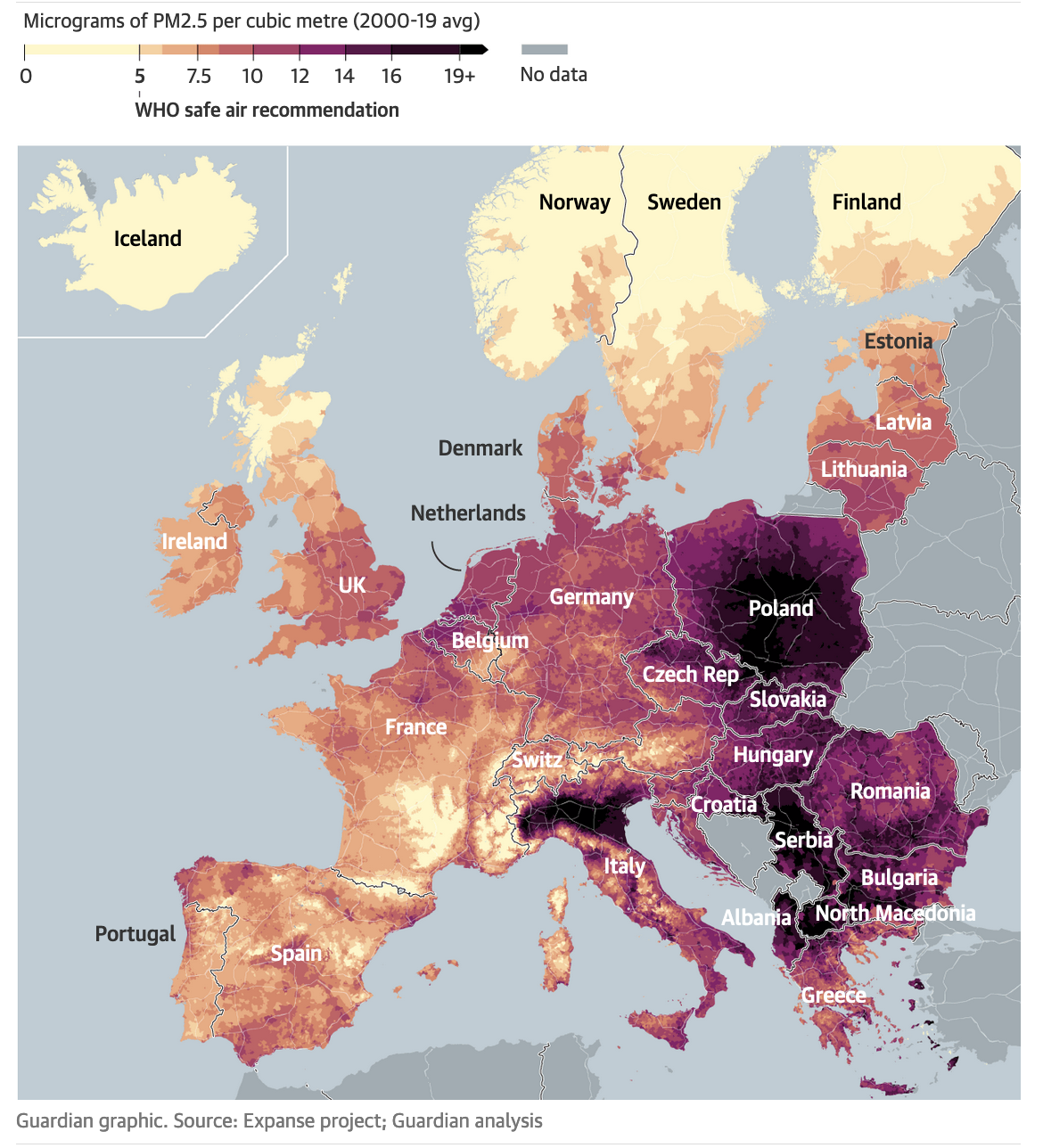Most of Europe faces a ‘severe’ air pollution crisis but the Nordic regions are escaping unscathed. Will they become a destination for ‘Clean Air Tourism’? Olivia Palamountain reports
A comprehensive study published in the journal Nature reveals that 98 per cent of Europeans are breathing dangerous levels of air pollution.
The findings are based on detailed satellite imagery, over 1,400 ground monitoring stations and advanced modelling techniques.
Experts say the results paint a dire picture of Europe’s air quality crisis that is posing a major threat to public health.
“This is a severe public health crisis. Nearly everyone in Europe is breathing unhealthy air,” said lead researcher Roel Vermeulen of Utrecht University.
The analysis focuses on PM2.5, tiny and hazardous particulates produced by burning fossil fuels. The World Health Organisation recommends average annual exposures remain below 5 micrograms per cubic meter.

Shockingly, the study discovered that two-thirds of Europeans live in areas where PM2.5 pollution is over 10 micrograms, more than double WHO limits. Several European countries, including North Macedonia, Poland and Serbia, have average concentrations four times the recommended level.
Several European countries, including North Macedonia, Poland and Serbia, have average concentrations four times the recommended level.
The highest pollution hotspots cluster in Eastern Europe, though Northern Italy also faces extremely elevated exposures. Even in Western Europe, a majority of the population lives in areas exceeding WHO guidance.
In Sweden, by contrast, there is no area where PM2.5 reaches more than twice the WHO figure, and some areas in northern Scotland are among the few across Europe that fall below it.
The researchers estimate PM2.5 exposure causes 400,000 premature deaths annually across Europe. The particulates can penetrate deep into lungs and enter the bloodstream, triggering heart disease, cancer, diabetes and more
“These deaths are preventable. Europe faces a unique opportunity to take bold action and prioritise public health,” said air pollution expert Dr Hanna Boogaard.
The study comes as the EU is considering strengthening its PM2.5 limits to align with WHO advice by 2030. Experts urge policymakers to act swiftly given the magnitude of the problem.
While some cities are implementing anti-pollution initiatives, study author Vermeulen said “politicians must act with more urgency” in light of the evidence.
Tackling the crisis will require system-wide transformation but promises enormous health benefits.
